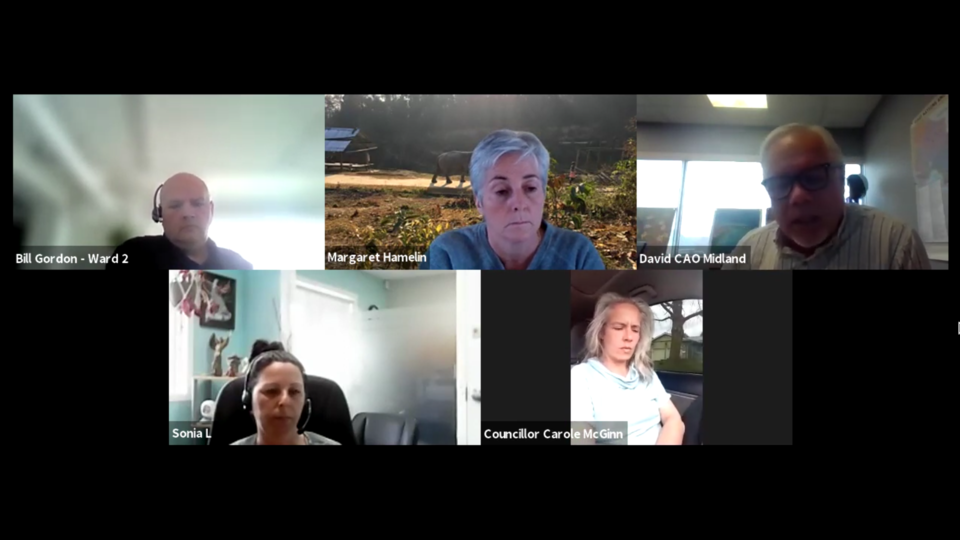Where most of us may take water for granted, it's more of a luxury for those who experiencing housing challenges.
This was the conclusion Margaret Hamelin, a member of the Midland Homelessness Action Committee, reached when she helped a man access clean drinking water on her property.
"I had a conversation with a gentleman who was behind the mall," she said at a recent committee meeting. "He said the hardest thing was water and washrooms. I told him he was welcome to use the hose by the side of my house.
"The first few times I saw him, he had a couple bottles. But the next few times I saw him, he came back with a wagon that had all sorts of water containers."
Before then, Hamelin said, this wasn't something she'd ever thought about in the context of those who experience housing challenges.
"This really shouldn't be so in the big scheme of things," she said. "It makes me sad that that's where we're at with some people."
The comment had stemmed from a conversation the committee members had been having around warming and cooling centres and how the town could help this year, keeping in mind COVID-19 protocols.
"Warming stations have been a really big challenge this year," said Sonia Ladouceur, community support worker, Shelter Now. "There's been concern about finding the space and volunteers to handle the situation within the COVID-19 parameters. I know locally our chapter of SCATEH (Simcoe County Alliance to End Homelessness) has decided we aren't going to let this happen next year.
"Our intention is to start working on a plan in September," she added. "We know winter comes every year; we know there are always capacity issues with shelters. Unfortunately, this year, there really wasn't an opportunity for individuals to get out of the cold. It was left across the region up to shelter operators to do the best they could."
That gave Coun. Bill Gordon the actionable items he had been looking for earlier in the meeting.
"What is the concept of warming stations in the context of homelessness?" he asked. "What is that experience? Is it an hour-long thing? Is there food involved? Do there need to be bathrooms?"
Ladouceur said the experience or offering depends on the region and capacity.
"In some cases, it can operate for a short time, depending on capacity," she said. "I don't think it involves food or anything. It's just literally to keep people from freezing."
Gordon was curious about what happens to people's belongings when they access a warming station.
Ladouceur said that would also depend on the space.
"Often times, if somebody is pushing around a large shopping cart with items, I would say they're going to leave it outside," she said. "Primarily, what we see are gym bags on people's backs. There's no reason they couldn't get in with them."
David Denault, chief administrative officer for the town, agreed.
"This is one of those areas which was impacted by COVID," he said. "People would traditionally go to a mall or a transit facility if they had enclosed space. They'd go anywhere where they could keep warm. It needs a much coordinated response, and that's not just for Midland. It's the same for summer with cooling stations."
That brought Gordon to the question of drinking water.
"I suppose there's also potable water to consider," he said. "We were able to put the porta-potty out where people were tenting. I don't know how effective that was."
Gordon suggested the town look into using its PUC water trailer that is used during special events.
"It might mean having the truck do a loop with that to let people (everybody) fill up their bottles with that," he said. "These are tactics we could look at that are in our wheelhouse."
Ladouceur said another aspect would be accessibility.
"We'd need to figure out how people can carry their bottles back," she said. "We see that at the food bank with food bags."
Gordon said providing a roaming potable water service could be a first motion that goes through the committee to council.
The committee will discuss the issue again at an upcoming meeting.



